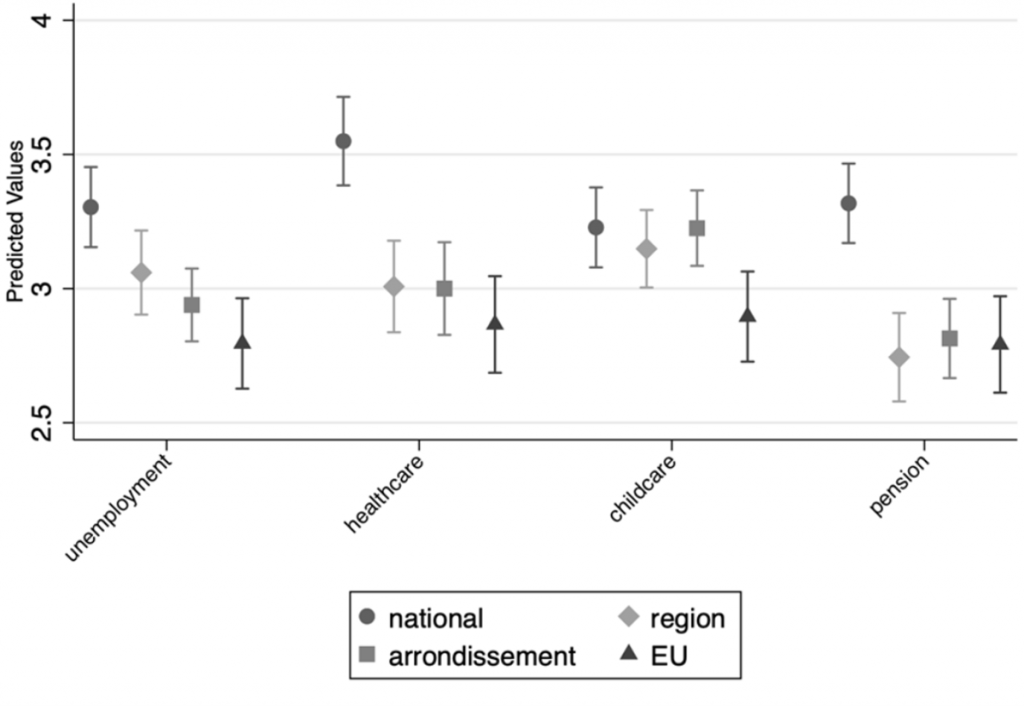Ann-Kathrin Reinl argues that welfare security is the quiet hinge of public support for EU enlargement. Credible guarantees on national benefits blunt fears about costs and migration. If we reassure citizens on welfare, support for a larger EU holds
Almost two years after Russia’s full-scale invasion of Ukraine, European Union leaders took a historic step in December 2023: they agreed to open accession talks with Kyiv. The decision did more than bring Ukraine closer to the European Union. It also projected the EU’s commitment to security, solidarity, and resilience in the face of aggression. Enlargement, in this moment, became not only a policy tool but a symbol of the EU’s ability to adapt and respond to crises.
Yet enlargement is not decided only in Brussels. The voices of the Union’s 450 million citizens carry decisive weight. If public opinion turns sharply against accession, political momentum can stall or unravel. As Giselle Bosse argued in this series, citizens must be engaged directly and meaningfully for enlargement to retain its legitimacy. That means not only listening but creating forums where civil society, the media, and ordinary voters can shape the debate.
Surveys suggest there is space for optimism. In early 2025, support for enlargement across the EU remained cautiously positive, with a Eurobarometer survey indicating that half of EU citizens endorse the current agenda. Support for Ukraine’s entry was even stronger, reflecting solidarity in wartime. But this picture is less stable than it looks.
For policy-makers, stabilising public support for the EU is just as important as negotiating the technicalities of EU accession
As Dmytro Panchuk warns, public approval is fragile. Approval can erode quickly if citizens feel uninformed, unheard, or economically threatened. The challenge for policy-makers is therefore clear. Stabilising public support and making it resilient against external shocks and populist attacks will be just as important as negotiating the technical chapters of accession itself.
Public opinion on enlargement is acutely sensitive to the broader security environment and the ways in which leaders and media frame the stakes. Russia’s war against Ukraine has made the geopolitical case for enlargement more visible. However, security is not the only prism through which citizens judge the process. Just as important are the everyday concerns about how admitting less economically advanced neighbours might affect welfare and social protection within existing member states.
For candidate countries with weaker economies, accession would require significant transfers of resources, which may mean diverting funds from existing beneficiaries
The gap matters. Candidate countries such as Albania, Montenegro, Serbia, Ukraine, and Moldova have economies that remain far below the EU average. Their accession would require significant transfers of resources, and citizens are aware that this could carry financial implications for the Union as a whole. Fears that cohesion and regional development funds might be diverted from existing beneficiaries are widespread. In places where EU investment is already seen as inadequate, the idea of further dilution feeds a sense of unfairness.
Beyond these funding concerns, anxieties also extend to a policy area Western governments have long sought to shield from EU interference: national welfare systems. Welfare services, from healthcare and pensions to unemployment schemes and family support, consume a large share of national budgets. Enlargement sparks fears that migrants from accession states will move west and draw on these benefits, increasing pressure on existing systems.
Under current EU law, even limited employment in another member state can make workers eligible for certain national welfare services. Radical-right parties frequently exploit these anxieties, portraying intra-EU mobility as a threat to national welfare systems.
These fears, however, are not immovable. Research on citizens’ preferences for welfare governance shows that once people are given credible assurances that their existing benefits will not be cut, resistance to EU integration in the welfare sector remains limited.
Under these circumstances, respondents are largely indifferent — neither agreeing nor disagreeing — about which level of governance (local, regional, national, or EU) should provide specific welfare policies. Although the national level remains the most popular for enacting and delivering welfare policies, when welfare guarantees are in place, support for EU-level integration in these sectors is only slightly lower and, in most cases, just as strong as support for delivery at the subnational levels.

Based on that, clear guarantees — such as ring-fencing entitlements, phasing access for new entrants, and communicating these rules transparently — could also neutralise much of the anxiety associated with EU enlargement. In practice, citizens apply a straightforward cost-benefit logic: if enlargement looks like it will shrink their share of prosperity, they cling to the status quo. If instead it promises to leave them no worse off, and perhaps better protected, they are willing to back it.
As Veronica Anghel highlighted in the opening post in this series, enlargement is a strategic necessity. Enlargement strengthens the EU’s geopolitical weight, internal resilience, and ability to tackle shared challenges. Yet stabilising public support and making it more resilient requires reassuring citizens that enlargement will not jeopardise their personal wellbeing.
Enlargement is a strategic necessity and strengthens the EU’s geopolitical weight. But to safeguard economic prosperity and citizens' welfare benefits, the EU must be transparent about its enlargement aims
Transparent communication and concrete measures to safeguard economic prosperity and welfare benefits are therefore essential. Policy-makers must present a compelling vision of a larger but also fairer European Union. By demonstrating that enlargement can protect and even enhance equity and prosperity, the EU can make a persuasive case for integration that resonates with citizens across all member states.